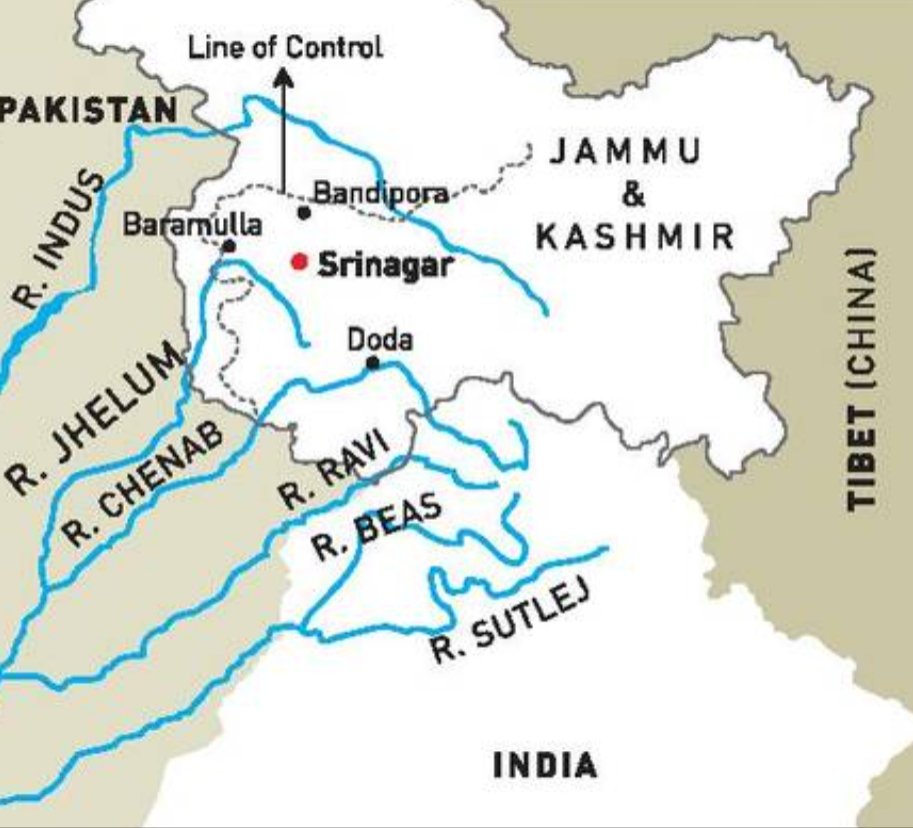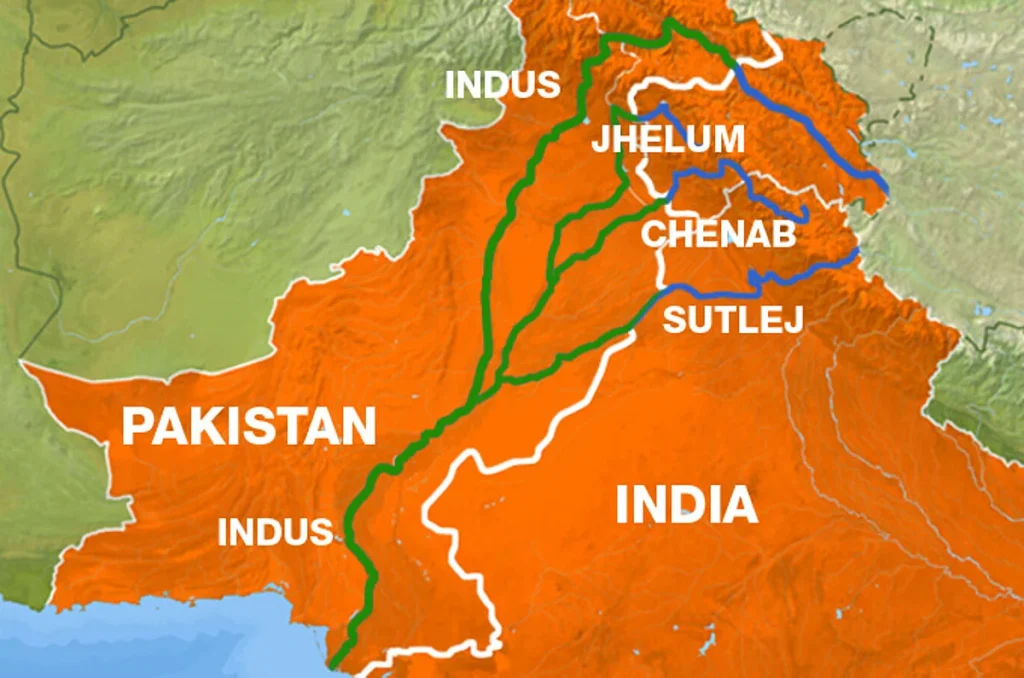If the Indus Water Treaty (IWT) is suspended, what could be the most serious consequence for India and the region?
a. Strain on infrastructure and resource planning
b. Shift in regional dominance and power dynamics
c. Heightened geopolitical tensions and international pressure
Introduction:
The Indus Waters Treaty, signed in 1960 between India and Pakistan and brokered by the World Bank, divides control of six rivers: India controls the eastern rivers (Ravi, Beas, Sutlej), while Pakistan controls the western ones (Indus, Jhelum, Chenab). Despite wars, the treaty has endured. However, growing tensions have led to calls for suspension. The implications would be far-reaching.
🔹 a. Strain on Infrastructure and Resource Planning
- India currently uses less than 4% of the 33 million acre-feet (MAF) water it is entitled to from the western rivers. To utilize more, it would need to build dams, reservoirs, and canal systems, which require long-term planning and large capital.
- Pakistan relies on the Indus Basin for 90% of its agricultural needs. Any disruption would severely affect food security, especially in the Sindh and Punjab provinces.
- The Bhakra-Nangal and Ranjit Sagar projects, among others, are based on the existing flow framework. Sudden changes could paralyze irrigation cycles in North India.
- India’s hydro projects on western rivers (e.g., Kishanganga, Ratle) would face technical, legal, and environmental delays if the treaty is revoked. 🔹 b. Shift in Regional Dominance and Power Dynamics
- Control over water, a critical resource, could become a strategic tool. India may attempt to leverage water as a pressure tactic, which could shift the regional balance of power.
- China, which controls Tibet-origin rivers like the Brahmaputra, may follow suit, jeopardizing India’s water security in the northeast.
- Water conflicts have historically shifted power equations— e.g., the Nile dispute among Ethiopia, Egypt, and Sudan has significantly changed regional diplomacy.
- India’s ability to reshape or stop water flow could be perceived as “weaponization,” increasing its strategic clout but also inviting retaliation. 🔹 c. Heightened Geopolitical Tensions and International Pressure
- Water is considered a shared humanitarian resource under international law. India suspending the treaty could be viewed as a breach of international norms.
- Pakistan may escalate the issue to international courts or the UN, prompting external pressure on India.
- The World Bank, a guarantor of the treaty, may intervene, affecting India’s global diplomatic standing.
- Terrorism, border skirmishes, or proxy conflicts may intensify in response, increasing instability in South Asia.
- Global perception: India as a rising power may face criticism from both Western democracies and neighboring nations, impacting foreign relations. ⚖️ Balanced View:
While infrastructure and power shifts are significant, they unfold gradually. Geopolitical tensions, however, would rise swiftly, drawing international attention, risking regional security, and inviting diplomatic isolation.
🔚 Conclusion:
Suspension of the Indus Water Treaty would ripple through agriculture, energy, and strategic sectors, but the most severe consequence would be the rapid escalation of geopolitical tensions, both bilaterally and globally, with far-reaching diplomatic and security implications.




